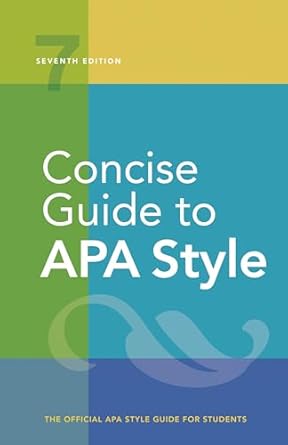[toc]
analyzing audio media podcasts interviews speeches
Concise Guide to APA Style: 7th Edition (OFFICIAL)
Page 305 Review
The Power of Audio: A Commentary on Podcast Episodes, Radio Interviews, and Speeches
In today’s media landscape, audio formats like podcasts, radio interviews, and speeches continue to hold immense power.
They offer a unique, intimate connection with the listener, allowing for deep dives into complex topics and the sharing of personal stories and perspectives.
Let’s delve into examples highlighting the richness and diversity of these formats, drawing from the provided text.
Podcast Episodes: A Window into American Life
The example of “Amusement Park,” episode 443 of *This American Life*, hosted by Ira Glass, showcases the compelling storytelling that podcasts offer.
The text describes it as: “Glass, |. (Host). (2011, August 12).
Amusement park (No. 443) [Audio podcast episode].
In This American life.
WBEZ Chicago. https://www. thisamericanlife.org/radio-archives/episode/443/amusement-park”.
The clarity of the citation format (Glass, 2011) for both parenthetical and narrative citations emphasizes the importance of proper attribution in academic and journalistic work.
This specific episode, readily accessible online, is a testament to the enduring appeal of *This American Life*.
The fact that it’s an audio podcast allows listeners to engage with the content while multitasking, a key advantage in our busy lives.
The provided information allows for citing the source correctly.
According to the text “List the host of the podcast as the author and include their role in parentheses.
Provide the episode number after the title in parentheses.
Specify the podcast type (audio or video) in square brackets.” This level of detail ensures accuracy and credibility in any research or writing that references the episode.
Radio Interviews: Preserving Intellectual History
The interview with Simone de Beauvoir, conducted by Studs Terkel, is an invaluable historical and intellectual artifact.
The citation reads: “de Beauvoir, S. (1960, May 4).
Simone de Beauvoir discusses the art of writing [Interview].
Studs Terkel Radio Archive; The Chicago History Museum. https://studsterkel.wfmt.com/programs/simone-de-beauvoir-discusses- art-writing”.
This provides a permanent record of Beauvoir’s thoughts on writing, offering insights into her creative process and philosophical perspectives.
The fact that this interview is housed in a digital archive, the Studs Terkel Radio Archive at The Chicago History Museum, highlights the importance of preserving these types of recordings for future generations.
The provided text explicitly instructs to “credit the interviewee as the author” when dealing with archived interviews, emphasizing the focus on the interviewee’s voice and perspective.
This type of archival access is precious.
Moreover, “For interviews that are housed in digital or physical archives (whether in audio or audiovisual form), credit the inter-viewee as the author.
For more on interviews, see Section 8.7.” It reinforces the meticulous detail required when referencing archived material.
Speeches: Inspiring Action Through Sound
Martin Luther King Jr.’s “I Have a Dream” speech is arguably one of the most iconic orations in American history.
The reference information states: “King, M.
L., Jr. (1963, August 28). | have a dream [Speech audio recording].
American Rhetoric. https://www.americanrhetoric.com/speeches/ mlkihaveadream.htm”.
The availability of an audio recording online, through platforms like American Rhetoric, ensures that King’s powerful words continue to resonate with audiences worldwide.
The impact of this speech transcends its historical context.
King’s eloquent delivery and passionate message of equality continue to inspire social justice movements and individuals striving for a better world.
The ability to access and study the audio recording allows for a deeper understanding of King’s rhetorical techniques and the emotional power of his words.
The citation format allows for others to find this resource.
From the reference text “King, M.
L., Jr. (1963, August 28). | have a dream [Speech audio recording].
American Rhetoric. https://www.americanrhetoric.com/speeches/ mlkihaveadream.htm”
The Importance of Proper Citation
Throughout these examples, the emphasis on proper citation is crucial.
The text consistently provides guidelines for parenthetical and narrative citations, ensuring that sources are accurately and respectfully acknowledged.
This adherence to academic standards is essential for maintaining intellectual integrity and avoiding plagiarism.
The text highlights it from multiple types of resources “Parenthetical citation: (Vedantam, 2015-present)
Narrative citation: Vedantam (2015-present)” and also emphasizes it’s importance
Conclusion: Audio Media’s Enduring Relevance
From podcasts to radio interviews to speeches, audio media continues to play a vital role in shaping our understanding of the world.
The accessibility of these formats online and in archives allows for widespread engagement with diverse perspectives and historical moments.
As illustrated by the examples provided, the power of audio lies in its ability to connect with listeners on a personal level, fostering empathy, understanding, and ultimately, action.
The meticulous citation practices ensure that these valuable resources are properly acknowledged and preserved for future generations.
Buy full ebook for only $18: https://www.lulu.com/shop/american-psychological-association/concise-guide-to-apa-style-7th-edition-official/ebook/product-rmzpq54.html?page=1&pageSize=4
Analyzing Audio Media Podcasts Interviews Speeches
Read more: Mastering Italics: Usage Guide & Examples

